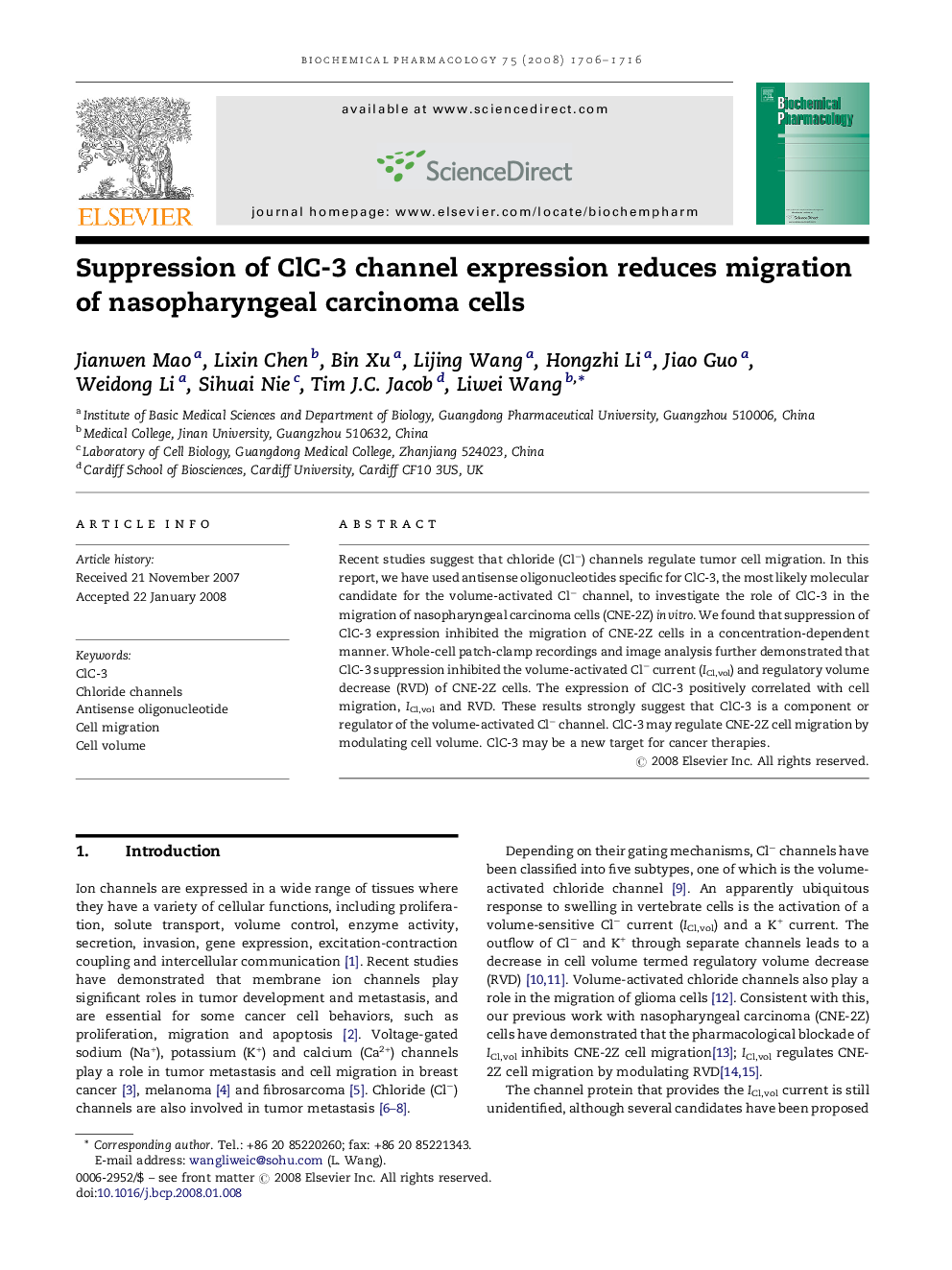| Article ID | Journal | Published Year | Pages | File Type |
|---|---|---|---|---|
| 2515293 | Biochemical Pharmacology | 2008 | 11 Pages |
Recent studies suggest that chloride (Cl−) channels regulate tumor cell migration. In this report, we have used antisense oligonucleotides specific for ClC-3, the most likely molecular candidate for the volume-activated Cl− channel, to investigate the role of ClC-3 in the migration of nasopharyngeal carcinoma cells (CNE-2Z) in vitro. We found that suppression of ClC-3 expression inhibited the migration of CNE-2Z cells in a concentration-dependent manner. Whole-cell patch-clamp recordings and image analysis further demonstrated that ClC-3 suppression inhibited the volume-activated Cl− current (ICl,vol) and regulatory volume decrease (RVD) of CNE-2Z cells. The expression of ClC-3 positively correlated with cell migration, ICl,vol and RVD. These results strongly suggest that ClC-3 is a component or regulator of the volume-activated Cl− channel. ClC-3 may regulate CNE-2Z cell migration by modulating cell volume. ClC-3 may be a new target for cancer therapies.
